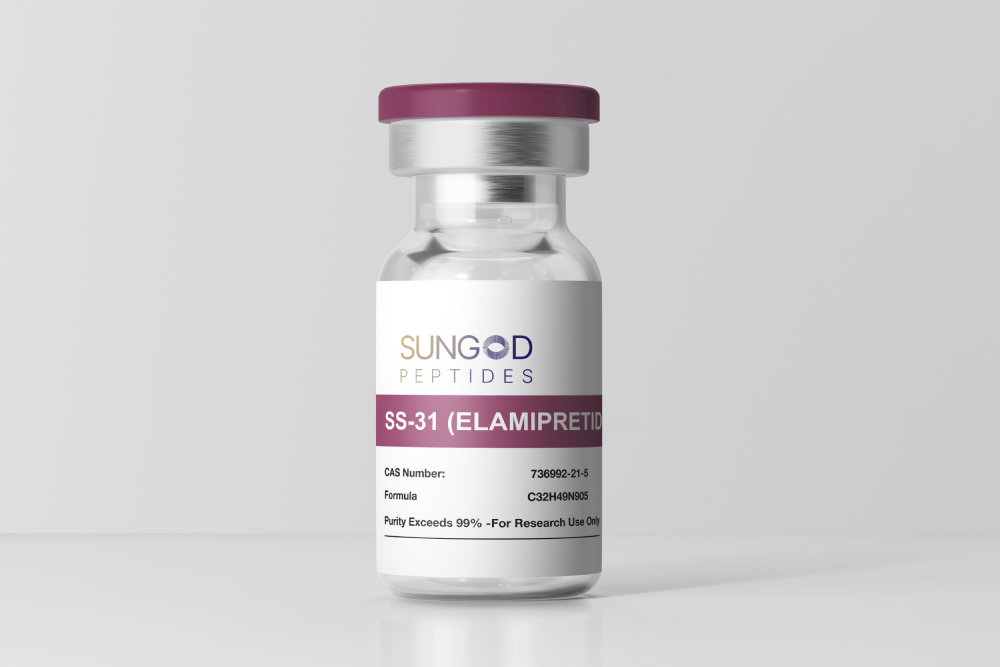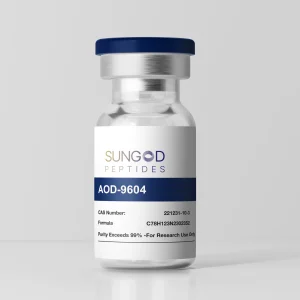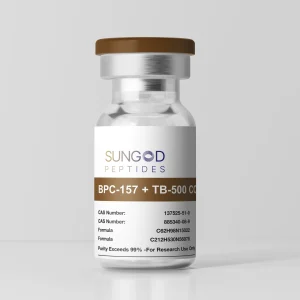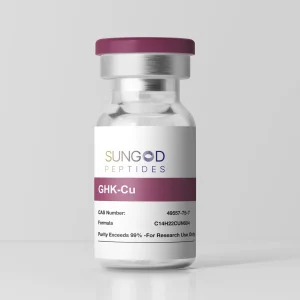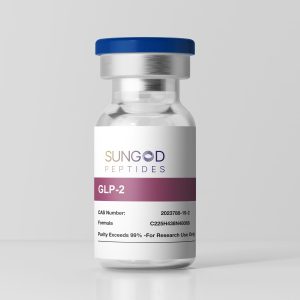SS-31
$178.25
SS-31
Islip
Pickup available, usually ready in 24 hours
3 Grant Ave.
Ste. B
Islip NY 11751
United States
+16316770030
SS-31 is a mitochondria-targeted synthetic peptide from the Szeto-Schiller (SS) family, designed to protect and restore mitochondrial function. It selectively accumulates in the inner mitochondrial membrane (IMM), stabilizes cardiolipin, reduces oxidative stress, and enhances ATP production. SS-31 has been widely studied for its therapeutic potential in neurodegenerative, cardiovascular, metabolic, and renal conditions where mitochondrial dysfunction is a core issue.
Applications
- Neurodegenerative diseases (Alzheimer’s, Parkinson’s, ALS)
- Heart failure and cardiac ischemia
- Mitochondrial myopathy and aging-related muscle decline
- Chronic kidney disease and acute kidney injury
- Inflammation and oxidative stress-related disorders
- Metabolic health and insulin sensitivity
Mechanism of Action
Mitochondrial Targeting via Cardiolipin Binding: Rapid cellular uptake and localization to the inner mitochondrial membrane by binding to cardiolipin
Cristae and IMM Stabilization: Preserves mitochondrial structure, preventing apoptosis and membrane degradation
ROS Reduction: Limits electron leakage and reduces mitochondrial-generated oxidative stress
ATP Production Optimization: Enhances electron transport chain performance, boosting energy output
Key Research Studies
1. Mitochondrial Protection & ATP Restoration
- Study focus: Cardiolipin binding and ATP production
- Findings: Stabilized IMM structure, improved ETC function, enhanced ATP production
- Reference: Szeto HH et al., 2011
2. Reduction of Oxidative Stress & Inflammation
- Study focus: ROS and cytokine levels in cardiac injury
- Findings: Decreased oxidative stress and inflammatory markers
- Reference: Birk AV et al., 2013
3. Neurodegenerative Disease Models
- Study focus: Cognitive function in Alzheimer's models
- Findings: Reduced neuroinflammation, improved mitochondrial health and memory
- Reference: Yang L et al., 2020
4. Cardioprotection in Heart Failure
- Study focus: Heart failure with reduced ejection fraction (HFrEF)
- Findings: Preserved cardiac output and mitochondrial respiration
- Reference: MMPOWER-3 Phase 2 Clinical Trial
5. Muscle Function & Metabolism
- Study focus: Muscle fatigue and mitochondrial performance
- Findings: Improved endurance, mitochondrial output, and insulin sensitivity
- Reference: Campbell MD et al., 2019
6. Kidney Protection
- Study focus: Ischemia and oxidative injury in kidneys
- Findings: Reduced kidney damage, preserved mitochondrial integrity
- Reference: Szeto HH et al., 2017
Biological Effects and Benefits
Mitochondrial Protection:
Preserves IMM structure, reduces dysfunction
Oxidative Stress Reduction:
Lowers ROS, limits lipid/protein/DNA damage
Enhanced ATP Production:
Boosts ETC efficiency and mitochondrial respiration
Anti-Inflammatory:
Reduces pro-inflammatory cytokines linked to chronic disease

Neuroprotection:
Protects neurons, improves cognitive and motor function
Cardioprotection:
Minimizes ischemia-reperfusion injury, improves cardiac output
Muscle Recovery & Endurance:
Improves muscle strength, reduces fatigue
Renal Health:
Reduces ischemic and oxidative kidney damage
Molecular Structure
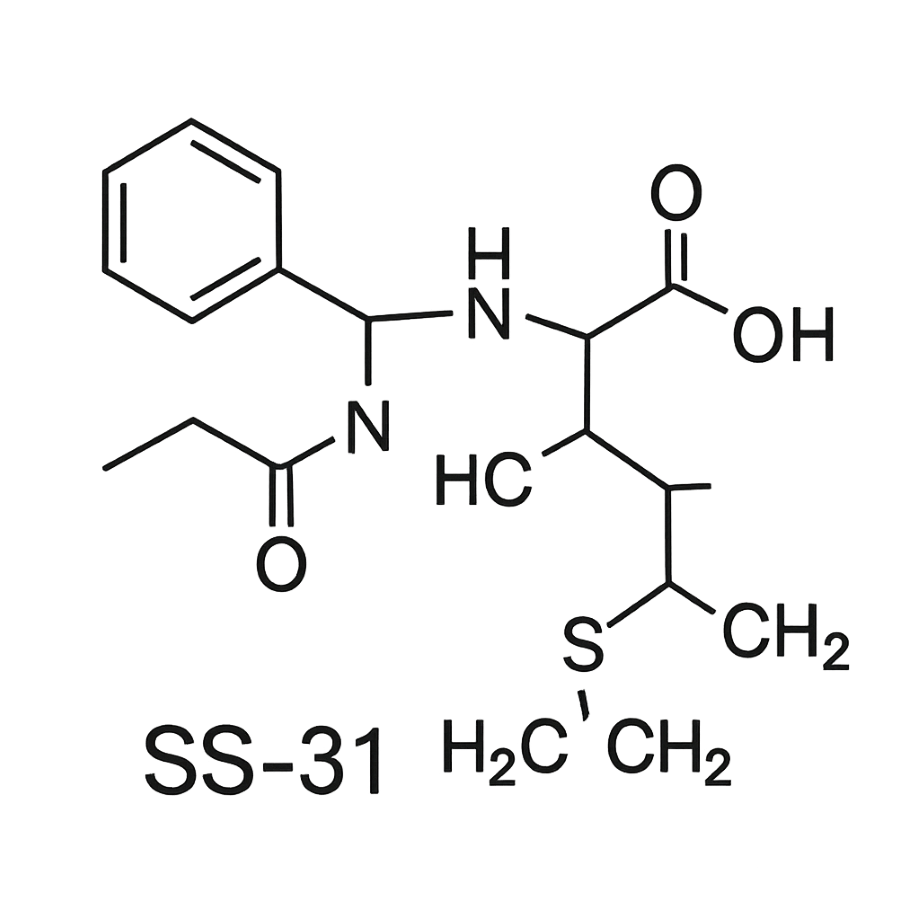
- Sequence: D-Arg-2′,6′-dimethyltyrosine-Lys-Phe-NH₂
- Molecular Formula: C₃₀H₅₀N₈O₇
- Molecular Weight: 639.77 g/mol
- Structure Notes: Cell-permeable tetrapeptide with high affinity for cardiolipin; accumulates in mitochondria without the need for a targeting sequence
